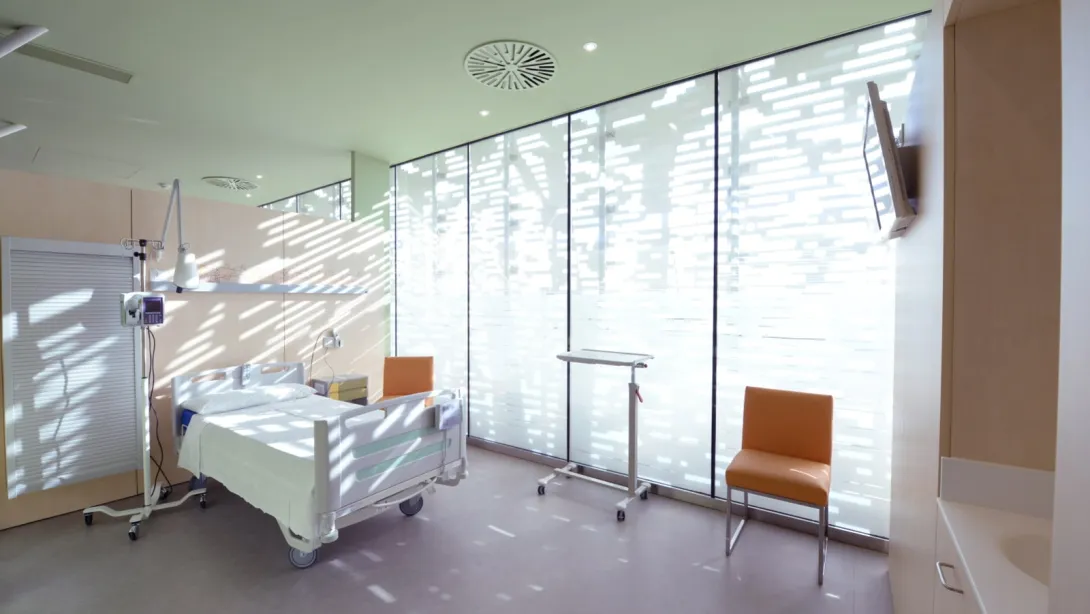
The SJD Barcelona Children's Hospital is always growing, always renewing itself, to remain at the forefront of modern healthcare, and therefore provide the best care possible to patients and families.
SJD Pediatric Cancer Center Barcelona, built together, for everyone
The SJD Pediatric Cancer Center Barcelona was opened in 2022 and specialises in treating and researching childhood cancer. Its purpose is to more effectively and efficiently care for over 400 children and adolescents each year. The facility boasts several oncology-targeted healthcare services, as well as research-oriented spaces. It was made possible by our 15 founding donors, hundreds of business and thousands of individuals.
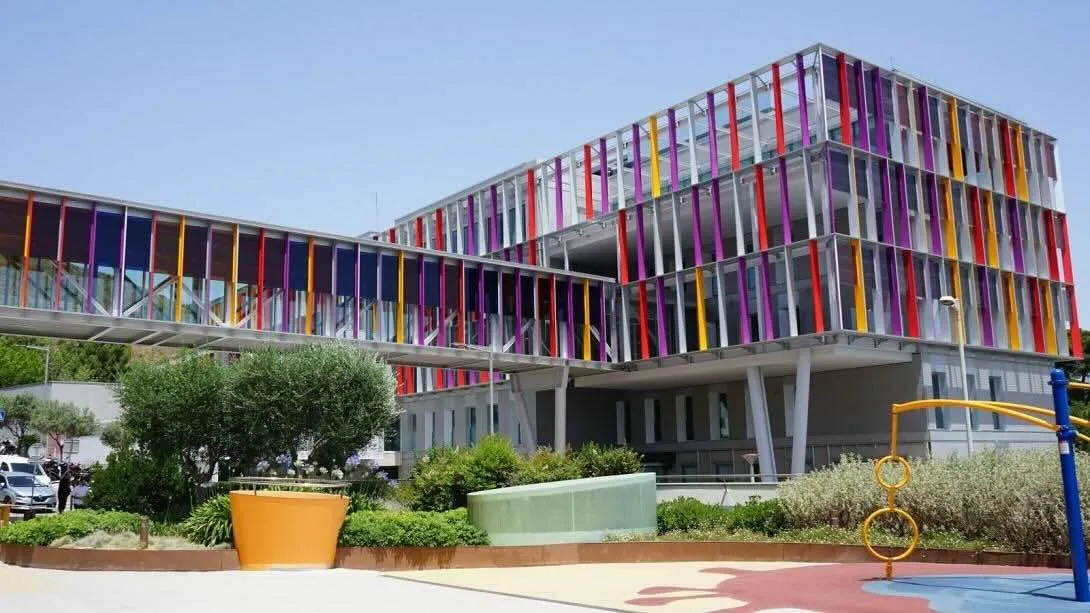
La Casa de Sofia
La Casa de Sofia is the first social-healthcare facility in Spain for children with complex chronic illnesses or those with advanced disease. This facility is sponsored by CatSalut and the Socio-sanitary Master Plan, and developed by SJD Barcelona Children's Hospital alongside the Vall d’Hebron Hospital and the Consorci Corporació Sanitària Parc Taulí [Parc Taulí Healthcare Corporation Consortium].
This centre's primary goal is to avoid the unnecessary admission into acute care hospital, as well as delaying long-term hospitalisation as much as possible. It also acts as a transitional facility for discharged patients before they return home. Furthermore, it is an option for families who prefer their child does not pass away at home, or for those who do not have that option.
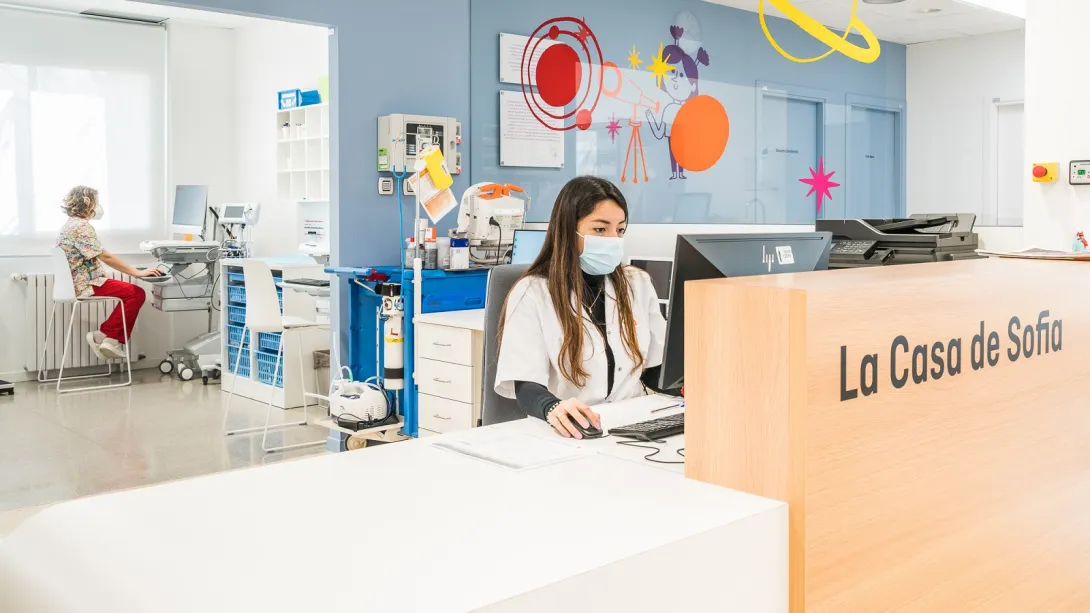
A new communications hub and games rooms
In 2021, we launched our communications hub, a new vertical communications space that connects two historically separated buildings: the children's hospital and the maternity ward. This new space incorporates games rooms on each of the six pediatric wards, designed for various different age groups. Furthermore, there are support spaces where professionals can meet with families.

Surgical wing: advanced tech for better results
The SJD Barcelona Children's Hospital is the first in Spain to have pediatric surgical theatres with MRI, CT and hybrid arc capabilities in the one facility. These advanced-technology devices make it possible to carry out minimally invasive procedures without moving the patient from theatre. There are over 15,000 surgical interventions carried out at the SJD Barcelona Children's Hospital each year, some of which have been groundbreaking in the field of pediatrics. Excellent new infrastructure thanks to public investment and the vital support of large donors.
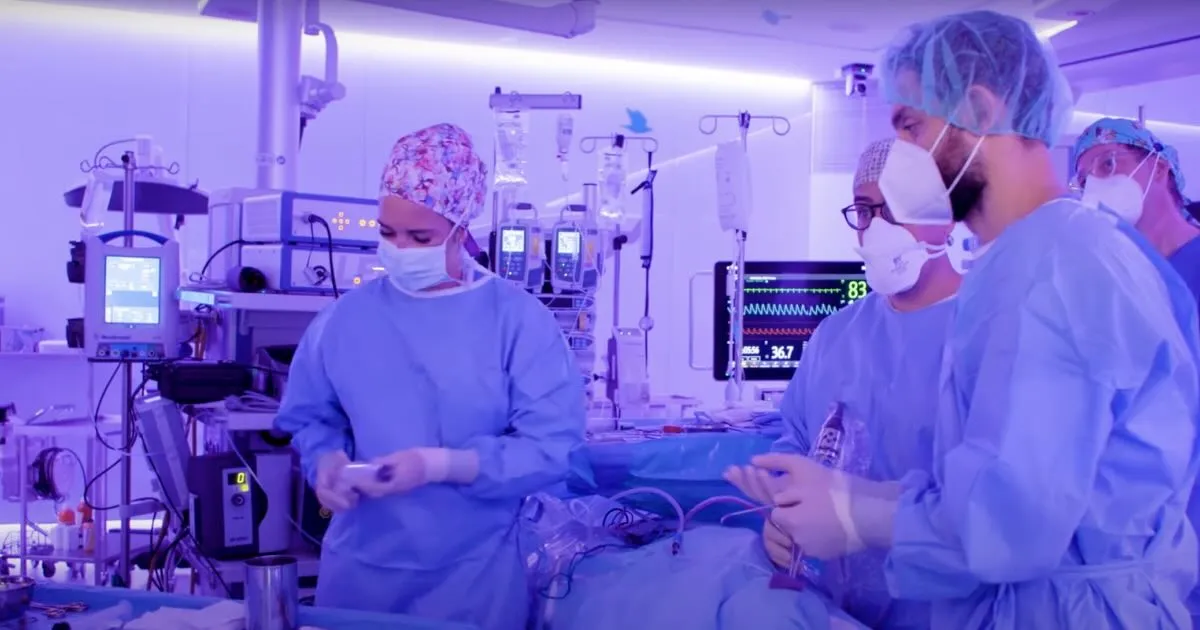
A new Neonatology space for caring and curing
We tend to more than 700 neonates per year requiring hospital admission. Some of them are extremely premature and are at high risk of severe complications. Since 2020, the Neonatology Department at the SJD Barcelona Children's Hospital has opened 2,200 metres-squared worth of new space, with enclosed cubicles to ensure privacy and comfort for both patients and families. It is also kitted out with the most up-to-date technology and equipment to treat these young patients in their first few months of life.
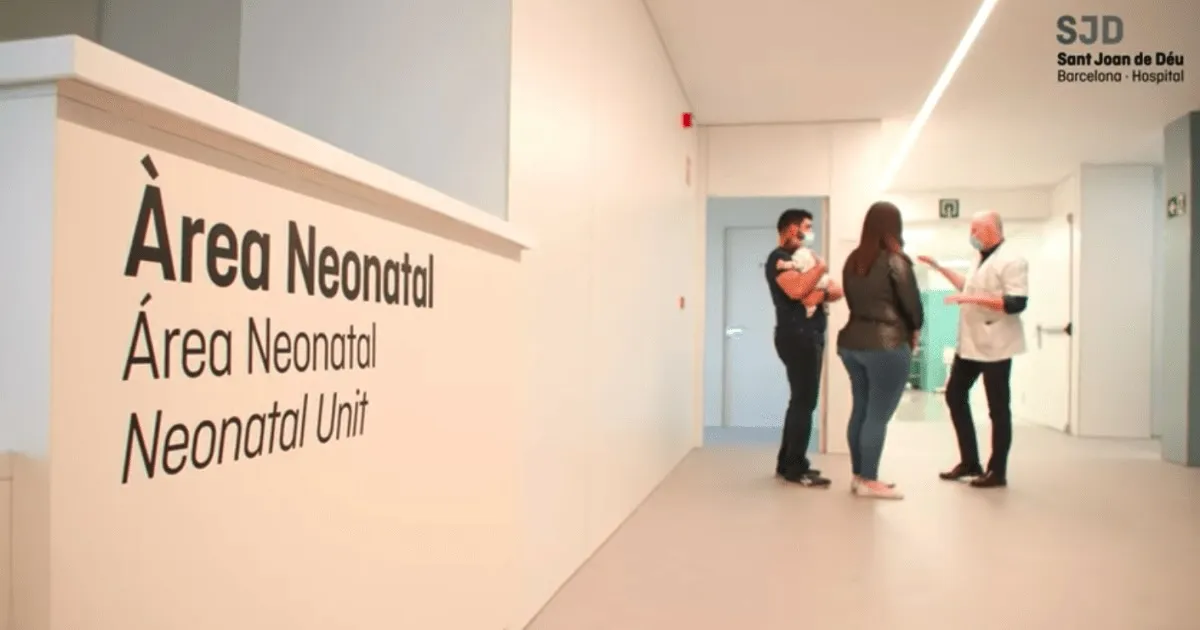
Space-themed CT and MRIs
We carry out 5,000 CT scans each year and a further 6,000 MRIs. They are painless procedures, but children still find them very stressful. Thanks to the space-themed decorations provided by Hewlett-Packard, we have managed to reduce the number of sedations required, as children find the environment much more pleasant. The CT environment had also been renovated by the Cellex Foundation months prior to the decoration.

Transplant rooms
Transplants of bone marrow, also known technically as hematopoietic stem cells, should be carried out in an isolation room. In 2016, we opened four of these rooms, with specific areas for families and professionals that follow the most up-to-date safety rules.
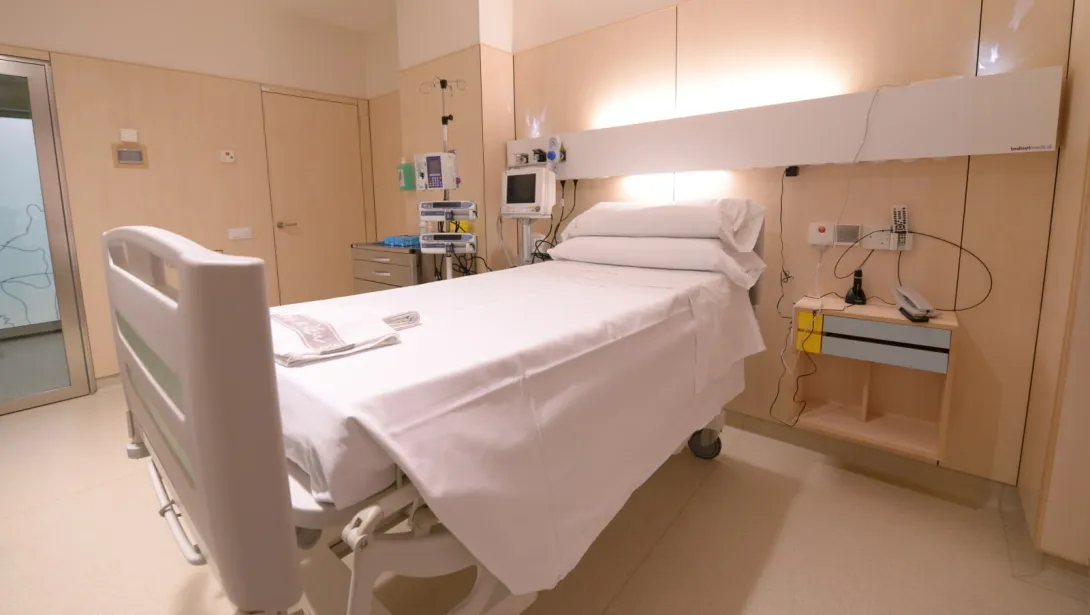
The Daniel Bravo Centre for the diagnosis and research of rare diseases
At the SJD Barcelona Children's Hospital, we want to learn more about the rare diseases affecting children. As such, we have consolidated three labs with highly advanced equipment onto one floor—genetic and molecular medicine, clinical biochemistry and anatomical pathology—. This allows us to identify genetic mutations which cause certain rare diseases, discover new variants of already-known diseases and also genetic mutations of diseases that have not yet been diagnosed.

A space for our patients’ families
Families of patients have an 800 metres-squared area just for them thanks to the Fundació Nou Mil·lenni [New Millenium Foundation]. The Family Area comprises every service aimed at helping families: Social Work, Spiritual Guidance, Patient Information, the Volunteer Department, 'Child Life' specialists and the Associations Area. Furthermore, the food bank La Botigueta Metabòlica is here, as well as a library and several areas for training workshops.
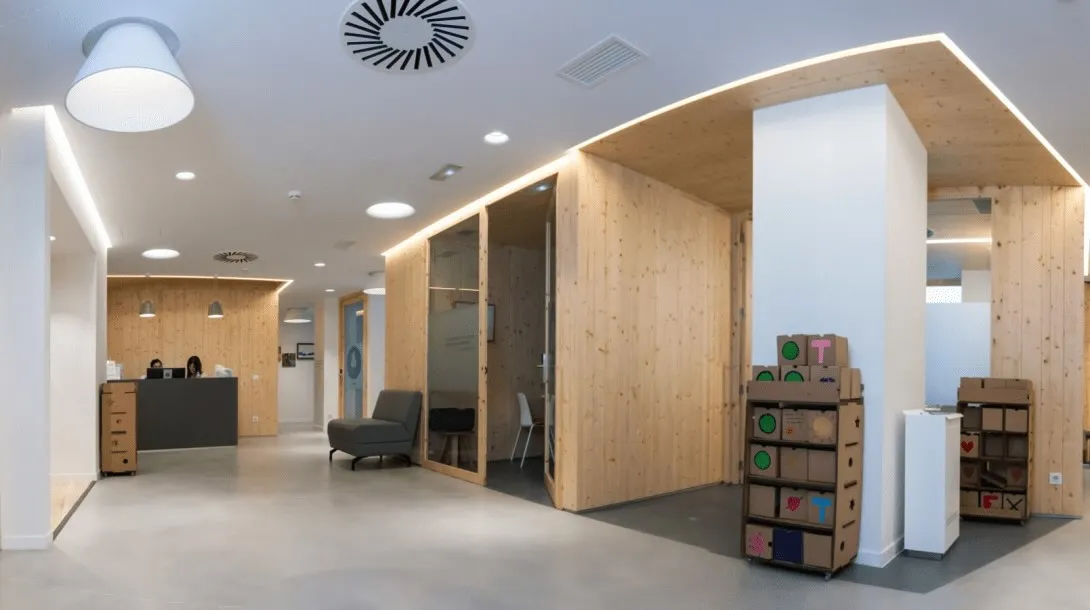
La Magnòlia School
There is also a school at our Hospital so that admitted patients do not fall out of their school routine. Despite most patients having class in their rooms, those who can physically attend the new school Escola La Magnòlia (funded by the Fundación José Manuel Lara) continue their studies alongside other children.
Continuing education while hospitalised is one of the key points in the European Association for Children in Hospital’s charter on children's rights.

New equipment: patient-focused technology
Rapid technological advancement not only makes the work of our professionals much easier, but it also improves the care our patients receive. Due to its many benefits, access to new technology is important for any hospital. However, this is not always possible due to a lack of resources.
Thanks to the donations we receive, we have been able to purchase new magnetic resonance and CT imaging equipment, as well as the latest retinography machines, 3D-visualisation cardiovascular ultrasound machines, new cribs and thermal blankets, multichannel brainwave monitors, video-endoscopes, a Vectra XT camera for 3D photography and two neurostimulation devices, and many more.

The Day Hospital
In hospitals, there are areas called 'Day Hospitals', where patients can receive treatment on an outpatient basis, meaning they do not need to spend the night. In 2015, we opened a new Day Hospital thanks to the one million Euros raised by the 'El árbol de los Pequeños Valientes' [The Little Heroes’ Tree] campaign. This campaign was made reality thanks to countless donors, including businesses, foundations, institutes, and pharmacies across Catalonia.
